Stop These 20 Habits and Watch the Pounds Melt Away

If you've been trying to lose weight but just can't seem to make it work, it might be time to have a look at your whole lifestyle, including diet, exercise, and wellness. Certain bad habits can prevent fat-burning and encourage weight gain, but replacing them with good habits can lead to success. "Keeping extra weight off takes effort and commitment, just as losing weight does," says Johns Hopkins Health. "Weight loss goals are reached by a combination of changes in diet, eating habits, and exercise." Here are 20 habits you should stop in order to lose weight and keep it off forever.
Staying Up Too Late

Sleep is very important for weight loss and fat burning. "Not getting enough sleep is also linked to weight gain," says the National Institutes of Health (NIH). "Experts recommend that adults ages 18 to 64 get 7 to 9 hours of sleep a night."
Not Tracking Food
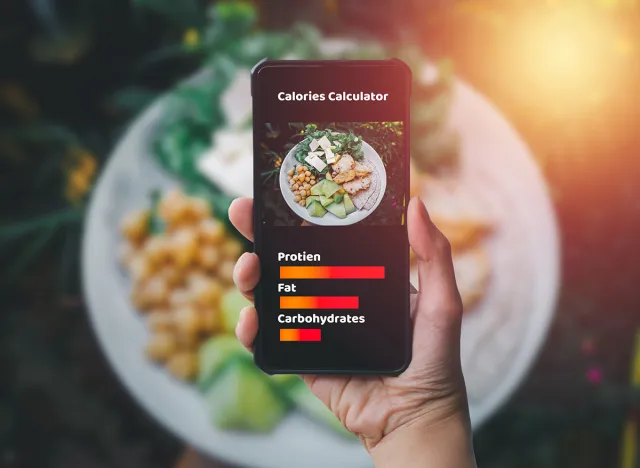
Use a calorie calculator and find out if you're taking in more than you're burning off. "If you take in more calories from food or beverages than you use during physical activity and through daily living, such as doing housework or walking to the store, your body may store some of these extra calories as fat," says the NIH.
Too Much Healthy Food
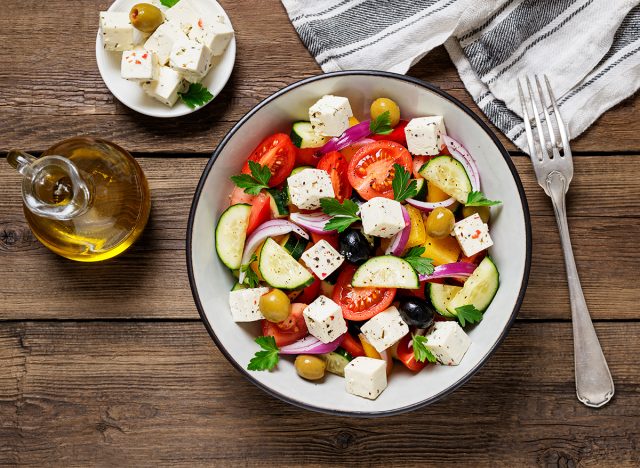
Healthy food still has calories—if you're eating more than you need, it can lead to weight gain. "Unless you need that fat right now in this moment, it's going to get stored," registered dietitian Melanie Murphy Richter tells AARP. "It is true that excess fat has a direct line to your belly and to other places where you hold fat in your adipose tissue."
Too Much Sugar
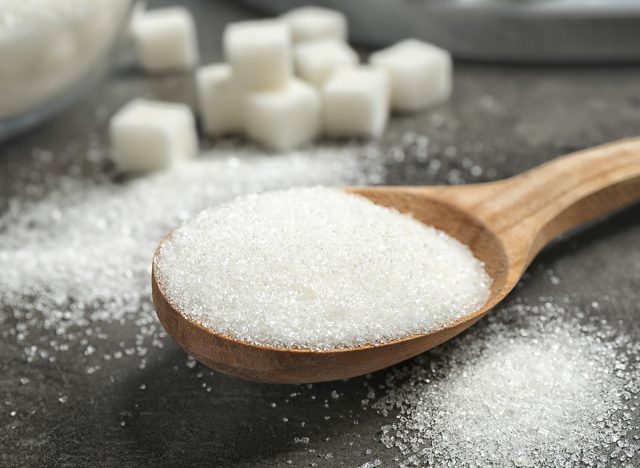
Is sugar derailing your weight loss? "I don't think we have enough evidence yet to suggest that sugar is the reason for the obesity epidemic," cardiologist Chiadi E Ndumele, MD, MHS, tells Johns Hopkins. "But there is enough evidence to say that elevated sugar consumption is an important contributor to weight gain."
Not Enough Walking

You don't have to go crazy at the gym to burn fat—just walk as much as you can. "If you've been pretty sedentary, start by aiming for a relatively low amount, like 3-4,000 steps a day," sports scientist Rosaria Barreto-Ellis tells The Telegraph. "If you're more active, figure out your average step count and focus on increasing it, as there is always room for improvement. A minimum of 10,000 steps a day is good to aim for."
Too Much Sitting All Day

Stay active throughout the day, even if you work out. Sitting for hours is connected to many negative health conditions and fat gain, especially abdominal fat. "The more you exercise, the more calories you'll burn," explains Corewell Health. "If you're trying to lose weight, you should aim for doing cardio at least five days per week for a total of at least 250 minutes (4 hours, 10 minutes) each week."
Not Managing Stress

Stress can make weight loss incredibly difficult. The spike in cortisol can lead to fat being stored around the abdomen. Look into stress-management techniques like meditation.
Too Much Snacking

Snacking can lead to taking in excess calories. "Too much snacking can reduce hunger at meal times or cause one to skip a meal entirely, which increases the risk of losing out on important nutrients," says Harvard Health.
No Exercise
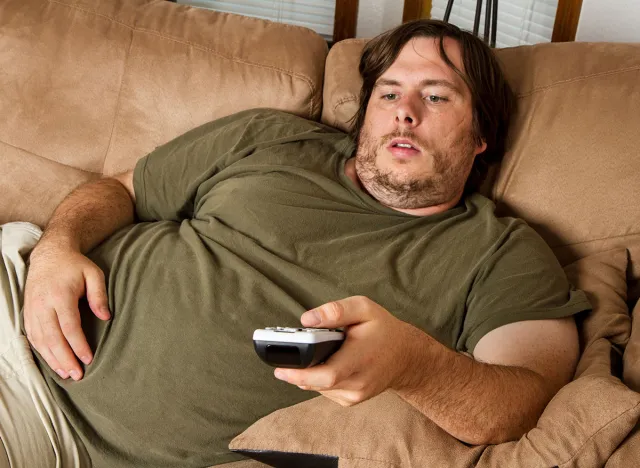
The more you move, the more calories you burn and the more weight you will lose. "Aim to exercise most days of the week," says the Mayo Clinic. "For even more health benefits, strive for 300 minutes a week or more of moderate aerobic activity or 150 minutes of vigorous activity."
Indoors Too Much

Get outside into the fresh air—it's good for your weight loss and mental health. Hiking is a great way to work out while enjoying nature. "Try to vary the intensity," physiotherapist Esther Fox, PhD, tells The Telegraph. "Walk fast for half an hour and add in some hills if you can. As well as benefiting cardiovascular function, you'll also be producing endorphins and boosting your mental health while increasing muscle density and improving your balance and coordination. For extra motivation I recommend using your phone or something like a Fitbit or Apple Watch to track your steps every day."
Not Eating Vegetables
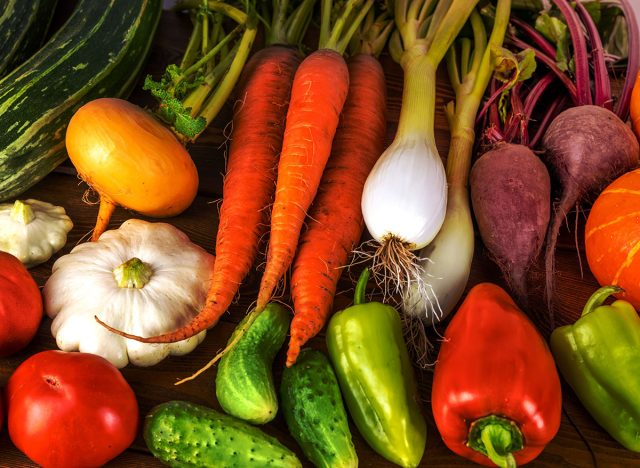
Vegetables are important for health and weight loss. "Foods that contain a high amount of fiber without a corresponding spike in blood sugar are ideal for satiation," Dr. Shaun Kennedy, ND, tells Sonoran University of Health Sciences. "Your best bet is to stick with foods that have a high level of micronutrients to accompany the fiber-like kale, spinach, arugula, watercress, broccoli, and cauliflower, as examples. These types of vegetables are ideal for weight loss because when eaten in large quantities, they can help to activate the stretch receptors in your stomach that will tell your brain you're full."
Not Eating Healthy Fats
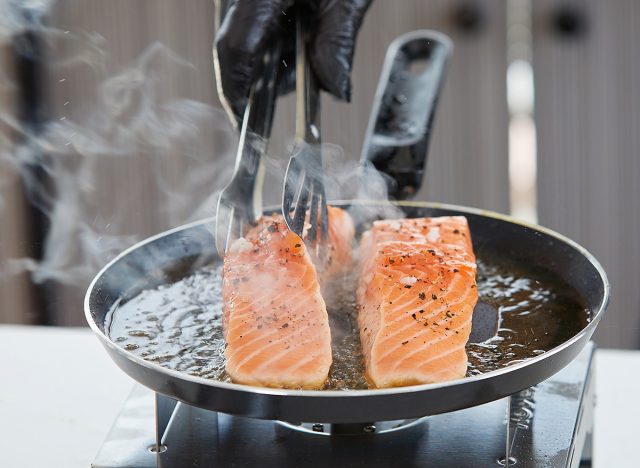
Cutting down on processed carbohydrates and eating more healthy fats can help with weight loss. "The theory is that by eating so many healthy fats and restricting carbohydrates, you enter an altered metabolic state in which you force your body to begin relying on fat for energy, burning away your fat stores instead of sugar for fuel," says Harvard Health.
Calorie Deficit
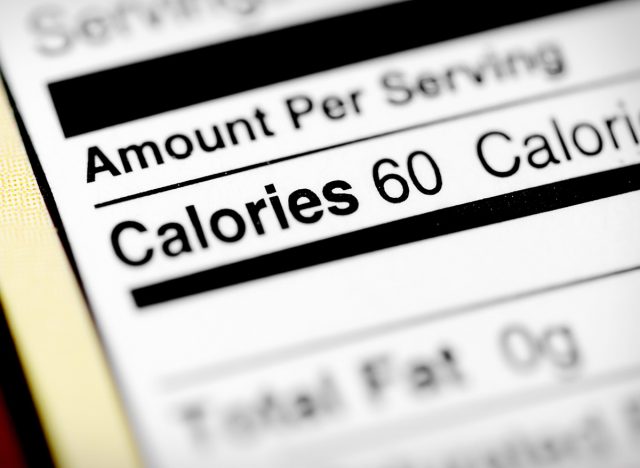
If you're not in a calorie deficit, you won't see results. "In general, if you cut about 500 calories a day from your usual diet, you may lose about ½ to 1 pound a week," says the Mayo Clinic. "But this can vary depending on your body, how much weight you want to lose, your gender and activity level."
RELATED: 12-3-30 Walking Method: 20 Proven Tips to Lose Weight Faster
No Cardio

Cardio can help burn hundreds of extra calories. "Cardio's role in helping you shed pounds is burning calories," says Beaumont Health. "The more you exercise, the more calories you'll burn. If you're trying to lose weight, you should aim for doing cardio at least five days per week for a total of at least 250 minutes (4 hours, 10 minutes) each week."
Crash Dieting
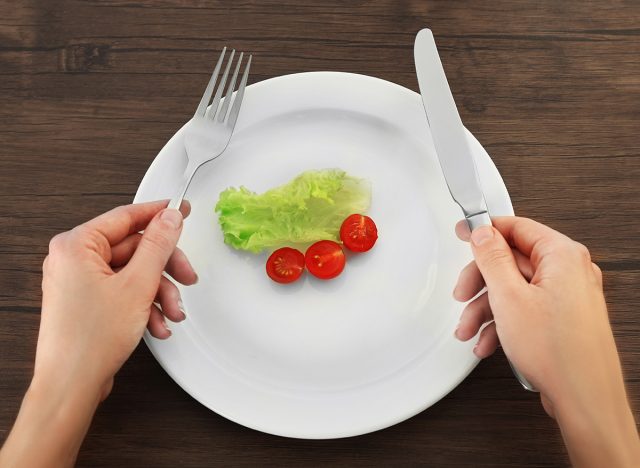
Crash dieting is terrible for your health and can undermine your weight loss. Make sure you're eating enough calories to fuel your workouts. This way, you can build muscle and burn fat.
RELATED: 10 Fat-Blasting Habits That Keep Chalene Johnson in Top Form Ever at 55
You Don't Lower Calories

Remember, as you lose weight, your calorie needs will change, too. "If you continue to eat the same amount that helped you lose those first few pounds, your weight loss will naturally slow because your calorie deficit will get smaller as your weight goes down," says the American Institute for Cancer Research. "This can be discouraging, but by setting realistic expectations, being patient, and combining physical activity with eating less, you can be successful."
Mindlessly Eating

If you find yourself mindlessly snacking, intermittent fasting might help. "Intermittent fasting contrasts with the normal eating pattern for most Americans, who eat throughout their waking hours," neuroscientist Mark Mattson tells Johns Hopkins Health. "If someone is eating three meals a day, plus snacks, and they're not exercising, then every time they eat, they're running on those calories and not burning their fat stores."
Not Enough Protein
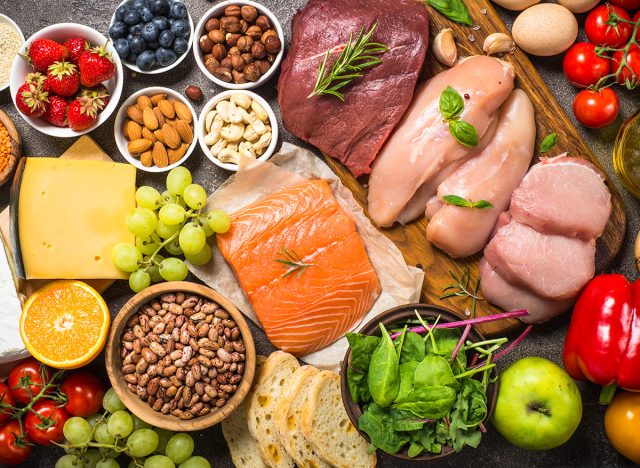
Eating protein is important for weight loss. "Increasing the amount of protein you eat can help reduce the buildup of harmful fats in your body, especially around your belly (abdomen)," says the Cleveland Clinic. "Protein is used to build muscle, so it can also help prevent muscle loss as you shed pounds."
Avoiding Weight Training

Strength training can give your weight loss a major boost, so don't be afraid of weights. "If you're building muscle, you'll be burning fat, even though your weight is the same or even if it goes up a bit," endocrinologist and obesity specialist Marcio Griebeler, MD, tells the Cleveland Clinic. "If you have more muscle, I can guarantee you your metabolic rate is up, and you're burning fat. And you'll be overall healthier, regardless of whether you've hit that weight number that you're looking for."
RELATED: I Lost 32 Pounds and Got Into the Best Shape of My Life With Walking and These Key Changes
Not Thinking Long-Term
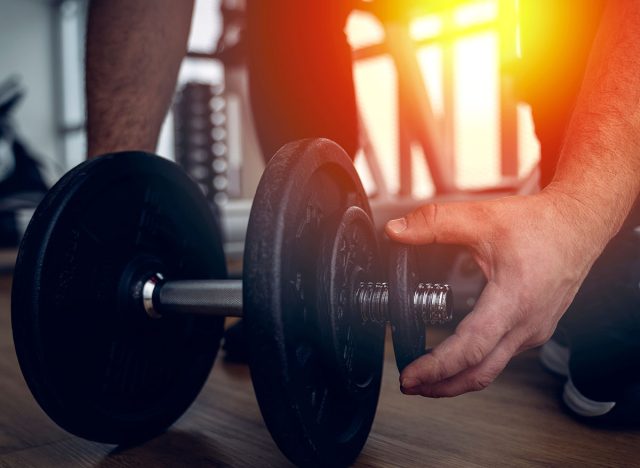
Remember—it's best to develop healthy habits that last a lifetime. "We don't want people to restrict, thinking, I can't have this," Adam Goldstein, MD, tells AARP. "You can have almost anything you want, in moderation… That's the real key. Anyone can lose weight. The question is, can anyone keep weight off?" And if you enjoyed this article, take advantage of these 15 Quick Ways to Lose Body Fat Percentage in a Week.




